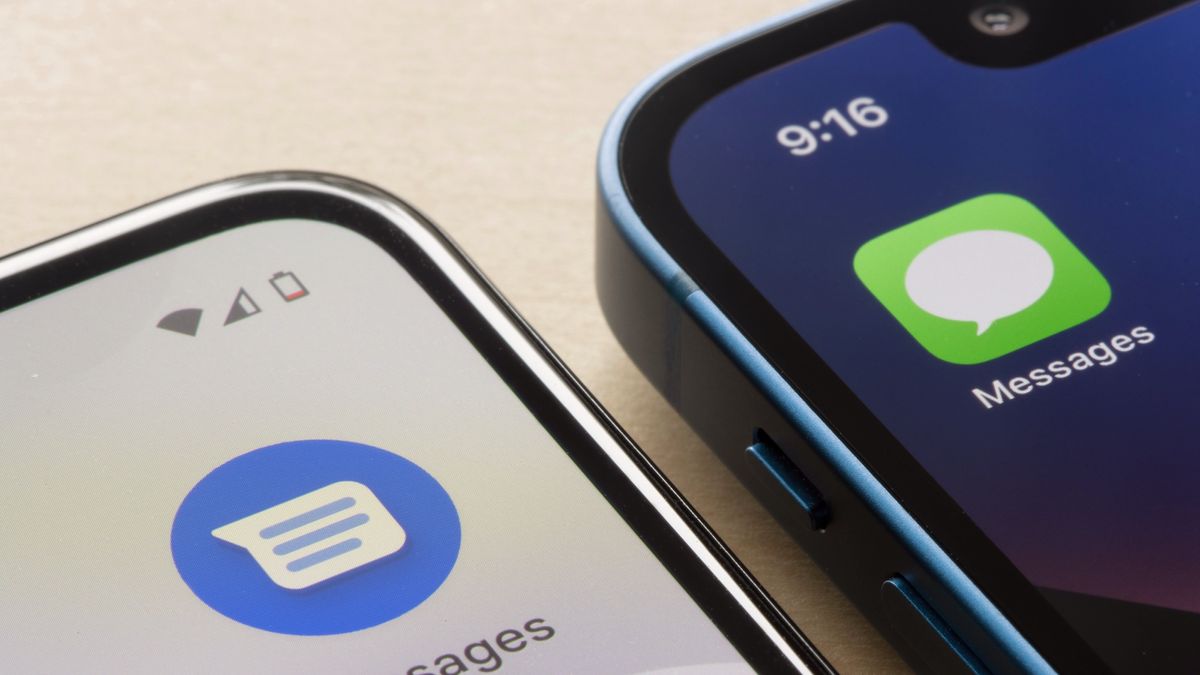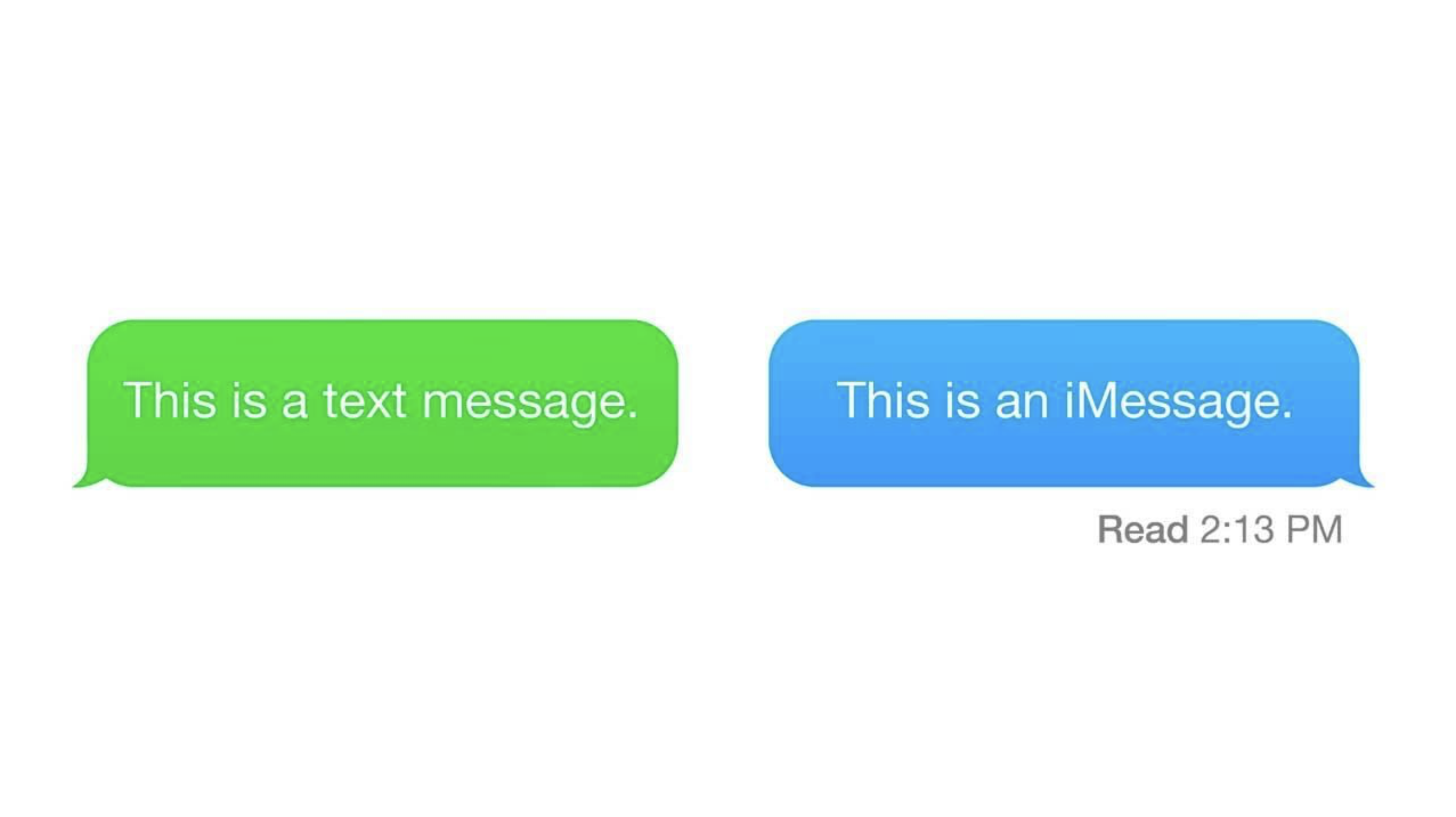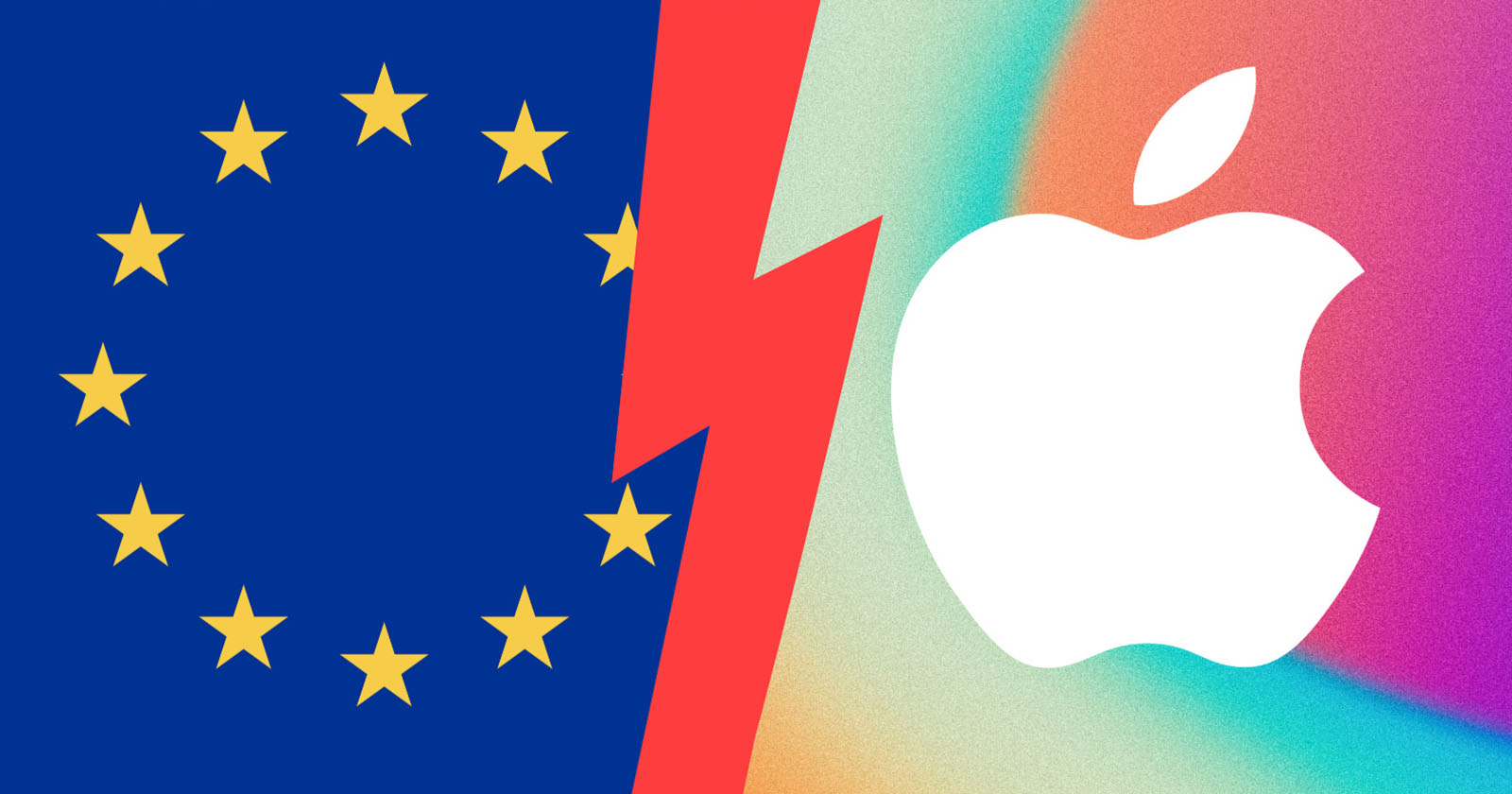Say Goodbye to Green Bubbles: What iOS 18.2 Means for Your iPhone
- Tired of those annoying green bubbles? Apple’s latest update has a solution!
- Find out why the FBI is urging a switch to encrypted texts—and how Apple is responding.
- Let's uncover how iOS 18.2 will change your messaging experience.
The upcoming release of iOS 18.2 next week promises not only a suite of new Apple Intelligence tools but also a significant overhaul in the way iPhones handle messaging. The most surprising update? The end of the notorious green bubbles that have long distinguished unsecured texts from Apple’s secure iMessage.
Goodbye Green Bubbles
For years, the green and blue bubbles in the iPhone’s Messages app have been more than just a color scheme. Blue bubbles signify messages sent via Apple’s iMessage service, offering end-to-end encryption and a seamless experience within the Apple ecosystem. In contrast, green bubbles represent standard SMS texts, which lack this level of security and have become a visual marker of communication gaps between iPhone and Android users.
 Photo via Tom's Guide // Apple to Android messaging is about to get a whole lot more secure.
Photo via Tom's Guide // Apple to Android messaging is about to get a whole lot more secure.
Apple’s decision to phase out green bubbles with the iOS 18.2 update aims to streamline messaging and bolster security. “By ending the green bubble distinction, Apple aims to streamline messaging and improve security for its users,” reports MacRumors.
The Cultural Divide and Security Implications
The green bubble phenomenon has been particularly pronounced in the United States, where WhatsApp has struggled to gain significant traction despite Meta’s efforts. “Meta and its CEO Mark Zuckerberg celebrated WhatsApp hitting the 100 million US users milestone in the summer,” noted the original report. However, the dominance of iMessage in social circles dominated by Apple devices has kept the green bubble issue alive.
Beyond aesthetics, green bubbles highlight a critical security concern: the lack of end-to-end encryption in SMS messaging. This vulnerability has caught the attention of both Chinese and US authorities. According to a recent briefing, hacking groups associated with China’s Ministry of State Security (MSS) infiltrated US telecommunications networks, prompting the FBI to warn citizens about the dangers of unsecured texts.
FBI and CISA’s Stance on Unsecured Messaging
In a press briefing, Jeff Greene, CISA’s Executive Assistant Director for Cybersecurity, emphasized the importance of encryption. “Encryption is your friend, whether it is on text messaging or if you have the capacity to use encrypted voice communications,” Greene stated. He further advised, “our advice is to try to avoid using plain text.”
The FBI’s warnings have underscored the need for more secure communication channels, especially in the wake of the Salt Typhoon hacking group’s activities. “The extent and depth and breadth of Chinese hacking is absolutely mind-boggling,” said Sen. Richard Blumenthal, highlighting the severity of the cyber espionage campaign. Photo via AppleDsign // Green bubbles vs. blue bubbles is very much an American thing, with EU and others already having made the switch to semi-secure messaging apps like WhatsApp.
Photo via AppleDsign // Green bubbles vs. blue bubbles is very much an American thing, with EU and others already having made the switch to semi-secure messaging apps like WhatsApp.
iOS 18.2: Empowering Users with Choice
One of the standout features of iOS 18.2 is the ability for users to change their default apps for the first time. This includes the phone dialer and messenger—two critical apps that the FBI and CISA have identified as potential security risks when left unsecured. With this update, iPhone users can now switch to encrypted messaging platforms like Meta's WhatsApp or Signal by default, mitigating the risks associated with green bubbles.
However, this shift is not without its challenges. “Apple offers FaceTime for calls and iMessage for texts, but both only secure iPhone-to-iPhone, so that doesn’t work,” the original article explains. This limitation means that while iOS 18.2 enhances security for Apple users, it also indirectly highlights the ongoing security disparities between different platforms.
Broader Implications: Looking Beyond the US
While the immediate impact of iOS 18.2 is set to be felt in the United States, there are broader implications for global users, particularly in Europe. The EU’s proposed Chat Control, which aimed to mandate the screening of private chats for illicit content, has been halted. As TechRadar reports, “on December 6, the European Pirate Party reported that the European Council Committee stopped the proposal (yet again) as more governments joined the list of countries against it.”
 Photo via PetaPixel // It's like the famous quote says: "America innovates, China imitates and the EU regulates." As always, the EU is trying to regulate everything under the sun, including private communications.
Photo via PetaPixel // It's like the famous quote says: "America innovates, China imitates and the EU regulates." As always, the EU is trying to regulate everything under the sun, including private communications.
This pause is significant because it prevents a potential backdoor into encrypted communications, preserving the integrity of secure messaging platforms. As Jeff Greene aptly put it, “we don't have any illusion that, once we're successful in evicting these actors, that they are not going to come back.”
The EU’s proposed Chat Control, which aimed to mandate the screening of private chats for illicit content, has been halted.
The Road Ahead
As we navigate through 2024, the landscape of digital communication continues to evolve. Apple's iOS 18.2 update marks a pivotal moment in this journey, balancing user experience with heightened security measures. While not everyone may opt to switch their default messaging apps, the shift towards encrypted platforms is a step in the right direction.
In the words of Sen. Richard Blumenthal, the ongoing cyber threats are a "massive espionage campaign that has affected dozens of countries." Apple's proactive approach in addressing these vulnerabilities reflects a broader industry trend towards prioritizing user security without compromising on functionality.
As users adapt to these changes, the hope is that the days of green bubbles will soon be a thing of the past, replaced by a more secure and unified messaging experience for all.
Recommended by the editors:
Thank you for visiting Apple Scoop! As a dedicated independent news organization, we strive to deliver the latest updates and in-depth journalism on everything Apple. Have insights or thoughts to share? Drop a comment below—our team actively engages with and responds to our community. Return to the home page.Published to Apple Scoop on 7th December, 2024.
No password required
A confirmation request will be delivered to the email address you provide. Once confirmed, your comment will be published. It's as simple as two clicks.
Your email address will not be published publicly. Additionally, we will not send you marketing emails unless you opt-in.